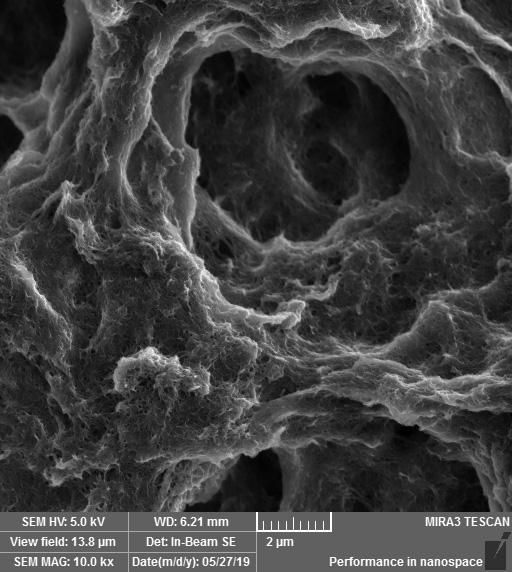Aalto University’s researchers were the first in the world to make use of carbon dioxide in the production of a battery protective coating. In the future, the coating could multiply the battery life and enable the use of new, more efficient materials.

Credit: Juho Heiska, Aalto University
When batteries are charged and used, a complex SEI (solid electrolyte interphase) layer is formed. Its structure resembles a mosaic consisting of organic and inorganic parts assembled from several blocks.
Researchers have noticed that if an artificial layer is applied to the electrode surface of a battery, the batteries can be recharged and used longer. The actual electrode material is saved when the separately added layer reacts and forms a protective SEI layer. The surface of an artificially produced SEI is also more even and of a higher quality than that of a naturally developed layer.
Inorganic materials, i.e. materials that do not contain carbon, have been used in the atomic layer deposition. Now, Aalto University’s researchers have been the first in the world to produce a coating using carbon dioxide in molecular layer deposition.
‘We will make a coating that imitates a completely natural SEI layer and which we hope will protect the actual electrode material’, says doctoral candidate Juho Heiska.
In addition to increasing battery durability, the artificial SEI can also enable the use of new, more efficient electrode materials. The battery is always composed of two electrodes, each with its own characteristics that affect the performance of the battery.
‘It would be a jackpot, if batteries could use metallic lithium. If clean lithium metal could be used safely, it would significantly increase the capacity of batteries. With the help of an artificial SEI, this might be possible’, says Juho Heiska. Metal lithium can ignite the battery if it comes into contact with water or air. It is, therefore, challenging to use it in batteries.
The use of batteries is increasing rapidly in society, as, for example, electric vehicles become more common. Therefore, improving sustainability and efficiency are important for the environment.
‘Metal extraction is too cheap at the moment, which is why companies do not have the incentive to produce products with a longer life span. And consumers are not interested in paying more for batteries’, says Juho Heiska.
The study succeeded in building an organic part of SEI. Next, the researchers will test how the artificial coating now developed protects the battery.
###
The article was published in Nanoscale Advances in May 2020.
J. Heiska, M. Madadi and M. Karppinen, CO2-based atomic/molecular layer deposition of lithium ethylene carbonate thin films, Nanoscale Adv., 2020,2, 2441-2447. https:/
Media Contact
Juho Heiska
[email protected]
Original Source
https:/
Related Journal Article
http://dx.




